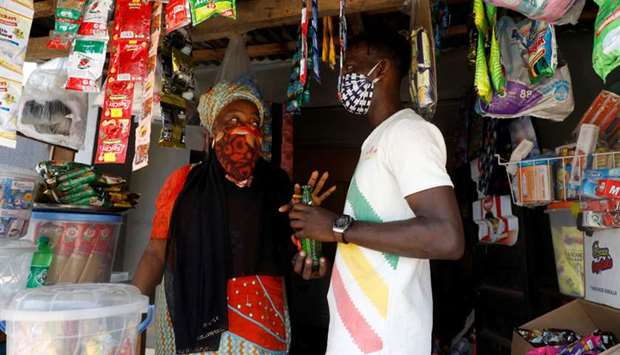Lawal Adebimpe knows she must remain a safe distance from people to help prevent the spread of the novel coronavirus in Nigeria. But her blindness means she usually holds people to navigate her way around the heaving megacity of Lagos.
Adebimpe, a baker who lives with her parents, lost her sight in 2018 after suffering retina detachment in a car accident. She said the need to remain 2m away from others hit her “like a bomb”.
“I have to depend on people to go out. I have to cross the road, I have to walk around, get a bus,” said the 31-year-old.
“Some people would not want to hold you because of the fear,” she added.
Unlike in many countries, Nigerian traffic lights do not make a sound when pedestrians can cross. And the lights often do not work.
Social distancing is particularly tough in a country with little support for blind people.
Juliet Gbefwi, who runs the Yeyedu Outreach Foundation for visually impaired people in the capital Abuja, said her charity is trying to help people like Adebimpe by encouraging adjustments to daily life: more hand washing due to the regular touching of surfaces, and teaching the use of a cane.
But each day throws up questions about the dangers of seeking help and whether help would be forthcoming.
Blind musician Shobowale Kehinde no longer ventures out to areas he does not know well.
As a cautionary tale, he recalls a recent incident when someone walked away when he needed help navigating his way in a busy Lagos street.
“I couldn’t call him back to say, ‘please hold me, I’m corona-free.’ I cannot prove myself innocent,” he said.

Shobowale Kehinde, 28, an entertainer who is visually impaired, buys a soft-drink bottle at a store in Iyawa area in Lagos.
